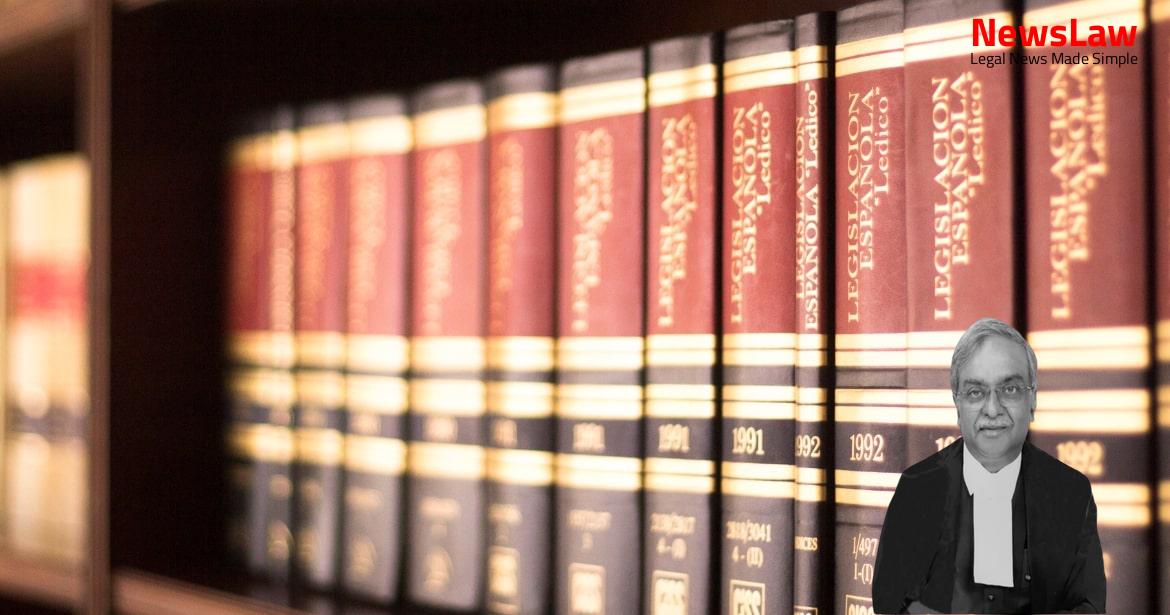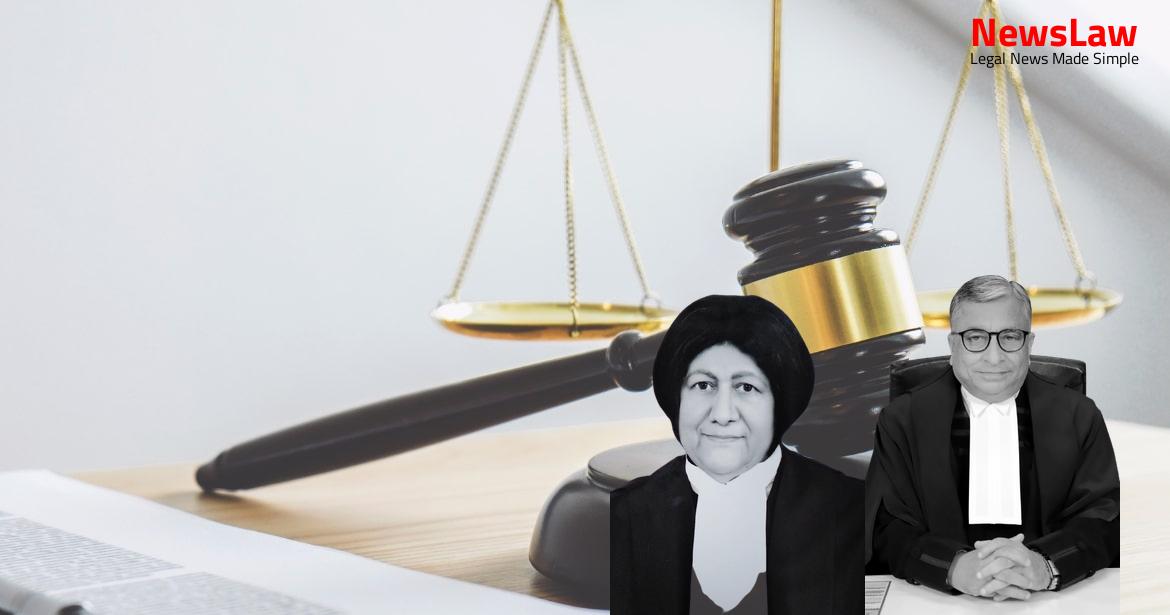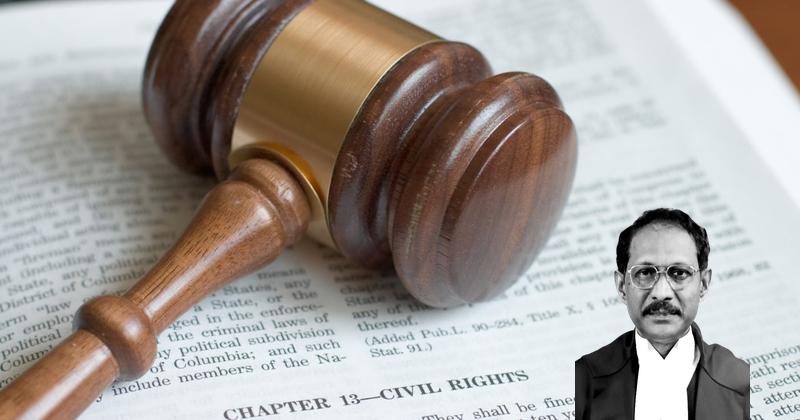A landmark judgment by the Supreme Court of India has ordered a CBI investigation into the allegations surrounding the death of Ms. Ranjana Diwan. The case involves the potential influence of respondent no.7, a senior judicial officer, on the investigation process. The Court aims to ensure a fair and impartial inquiry, upholding the principles of justice and integrity in the legal system.
Facts
- The appellants, the mother and brother of the deceased, received a phone call on 12.05.2016, informing them of Ms. Ranjana Diwan’s suicide.
- The appellants believed there was foul play involved in Ms. Ranjana Diwan’s death and not a simple suicide.
- On 13.05.2016, the police made recoveries as per Annexure -P/2 after conducting the post-mortem at 06:30 PM.
- The appellants had the option to seek remedy under section 156(3) of the Cr.P.C. by approaching the Magistrate concerned.
- The respondent no.7, being a senior judicial officer, was selected and appointed as Addl. District Judge, Geedam at Dantewada in June 2013.
Also Read: Case Summary: Pay Disparity Dispute Resolved by Supreme Court of India
Issue
- Respondent no.7 applied for Higher Judicial Services in Chhattisgarh against the 2012 advertisement.
- The issue at hand is related to respondent no.7’s application in the Higher Judicial Services.
Also Read: Land Dispute Resolution: Specific Performance Decree for Plaintiffs in Ranchi Property Case
Arguments
- Appellants argue that filing a complaint under section 156(3) Cr.P.C. was not a viable option due to the influence of respondent no.7, a senior judicial officer.
- They approached the High Court under Article 226 of the Constitution of India seeking justice.
- Detailed arguments presented to highlight respondent no.7’s high-handedness in obstructing the registration of an FIR and a fair investigation into the suspicious circumstances surrounding the death.
- Request made to direct an independent agency to investigate the matter due to lack of faith in the local police machinery.
- Claims that over 50 witnesses were interviewed and every complaint was examined at the highest level, but no evidence was found against respondent no.7.
- Appellants accused of doubting the credibility of the Chhattisgarh police and falsely blaming them along with respondent no.7.
- Appointment of CBI for investigation is not warranted in the present case.
- A thorough inquiry was conducted where no complicity of the respondent was found.
- Solicitor General suggested considering a high-level Special Investigation Team or CBI for credibility.
- Investigation by CBI may dispel doubts and provide justice to the aggrieved party.
- No incriminating material was found against the respondent in all previous inquiries.
- The appeals seem to target the respondent with ulterior motives despite the lack of evidence against them.
Also Read: Matter of M/S. SS. Infrastructure: Landmark Judgment by the Supreme Court of India
Analysis
- The Court acknowledges the need for a thorough, fair, and independent investigation to uncover the truth regarding ante mortem injuries in the case.
- The Court allows the appeal and directs the transfer of the case from SIT to CBI for investigation.
- The SIT is instructed to hand over all relevant documents to the CBI for their investigation.
- CBI is required to submit a complete investigation report or charge sheet promptly.
- The power to direct CBI investigations should be used sparingly and not as a routine practice.
- The Court heard allegations of bias and undue influence on the Chhattisgarh State police, highlighting the importance of a diligent investigation.
- It is emphasized that unresolved crimes can undermine public trust in the legal system, and effective criminal investigations are essential.
- The Court notes the logistical challenges faced by the deceased’s relatives from Manipur and the importance of upholding their trust in the justice system.
- The decision to transfer the case to the CBI is made to facilitate a proper investigation and ensure justice for the victims.
- The order of the Delhi High Court dismissing the transfer of investigation to CBI is set aside.
- The State of Chhattisgarh is instructed to cooperate fully with the CBI in their investigation.
- CBI is empowered to register an FIR if necessary and proceed accordingly, bringing any complaints to a logical conclusion.
- The Constitutional Courts can issue directions for a CBI enquiry under specific circumstances.
- The power to transfer investigation should be used sparingly for ensuring justice and safeguarding fundamental rights.
- Ordering a CBI investigation should not be routine or based solely on allegations against local police.
- The extraordinary power to direct a CBI enquiry must be exercised cautiously and in exceptional situations.
- This Court has wide powers to direct further investigation at any stage, even after a chargesheet has been filed by the prosecuting agency.
- In the case of Awungshi Chirmayo vs. Government of NCT of Delhi, CBI was directed to conduct an enquiry in a murder case due to puzzling facts.
- It is the responsibility of the police to thoroughly investigate crimes and ensure culprits are brought to trial.
- The direction needs to be issued in the present case.
- Observations made in this judgment will not influence the investigation by the CBI.
Decision
- The appeal has been allowed but no observation on merit has been made.
- The impugned order passed by the High Court has been set aside.
- The CBI is directed to conduct a complete and fair investigation into the incident of 2016.
- The CBI is instructed to proceed in accordance with the law and to do so expeditiously.
- A report on the investigation is to be submitted to the Court.
Case Title: MANDAKINI DIWAN Vs. THE HIGH COURT OF CHHATTISGARH (2024 INSC 666)
Case Number: Crl.A. No.-003738-003738 – 2024



